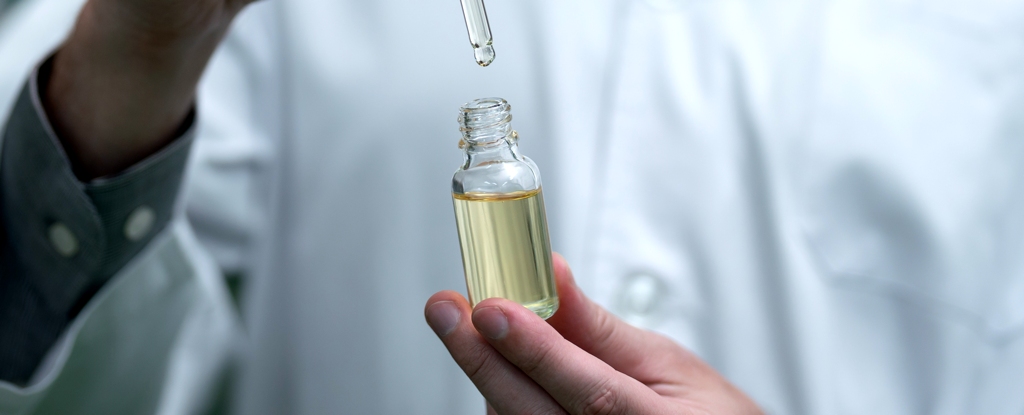Since 2018, when the British parliament passed a law legalizing CBD, the non-psychoactive component of cannabis, sales of CBD-related products have skyrocketed. Today you can buy CBD oil, CBD vape pens, CBD coffee, CBD muffins to accompany your CBD coffee. And these products are often sold with various vague promises of improving well-being.
As CBD, in this context, is not a medicine, it is not regulated by the UK Medicines Regulator but by the Food Standards Agency (FSA). In 2020, the FSA recommended that daily CBD consumption should not exceed 70 mg. Now the FSA and Food Standards Scotland have reduced this limit to 10mg, or around four drops of 5% CBD oil.
To be clear, 10 mg is the recommended safety limit. You won’t be stopped if you consume more than 10 mg a day, but the agency warns that there may be long-term health effects if you ignore the advice, namely liver and liver damage. thyroid.
The effects of CBD have been tested on a range of illnesses, from schizophrenia to anxiety, with mixed results. When benefits are evident, it is usually at a much higher dose, around five times the previously recommended maximum intake.
The new recommended limit of 10 mg has nothing to do with the effectiveness of the drug at this dose as there is no proven effect. The move to a lower recommended dose comes after several studies indicated that CBD may not be as harmless as previously thought.
To determine how harmful a substance is, or rather what is the highest safe amount a human can consume in a given time, scientists test it on animals and then apply a “correction level”.
For example, if in a study using rats a dose of 100 mg per kilogram of body weight is considered the highest dose at which no harm is observed, for a 70 kg human this would mean a daily intake of 7 g.
There are, however, differences in metabolism between species, with humans potentially being more susceptible to damage.
Accidentally increasing the dose
It’s worth noting that seemingly harmless foods, like grapefruit, broccoli, and a well-done steak, can all interfere with the metabolism of certain medications. It is already known that rifampicin, a widely prescribed antibiotic, can interfere with the metabolism of CBD. Other medications should be closely monitored for potential interactions.
There is also an increased risk of receiving too high a dose when taking CBD with other medications, such as ketoconazole (a medication intended to control fungal infections), and even increased absorption when taking CBD is taken with fatty foods. This is why it is not uncommon for drug safety experts to apply a correction factor of 400 to previously calculated values. This would reduce the permitted intake of 7 g per day to just 17.5 mg per day.
Using several animal studies on CBD that reported similar values and correction factors, out of an abundance of caution, the new recommended level was recently made public. That’s the job of public agencies: based on the best possible evidence, indicate whether a component can do what it’s supposed to do and not cause harm in doing so.
It is important to emphasize that the recent FSA announcement does not constitute a ban. You can still purchase CBD-infused drinks that exceed the new daily limit in a single serving. However, any new products will – as before – need to be approved by the FSA, which could be more difficult with this new limit. Ensuring safety, particularly for a substance that appears to provide very little benefit in return, is rightly the agency’s priority.
Julio de Carvalho Ponce, Senior Lecturer in Forensic Science, University of Winchester
This article is republished from The Conversation under a Creative Commons license. Read the original article.
#Cannabis #Recommended #dose #CBD #reduced #due #safety #concerns
Image Source : www.sciencealert.com

